
This one lady said, “If you find that one thing that makes you happy and you make that your career, you’ll be happy.” When I found anthropology, I started to bloom. It’s finding the groove that you fit in.
1. What led you to the mission of being the Director of the Museum of the Cherokee Indian?
When I grew up I came from a single parent household, lived in a trailer park, poor, and didn’t have much. I went to public schools. All my buddies had money. I was ashamed about my Indian-ness.
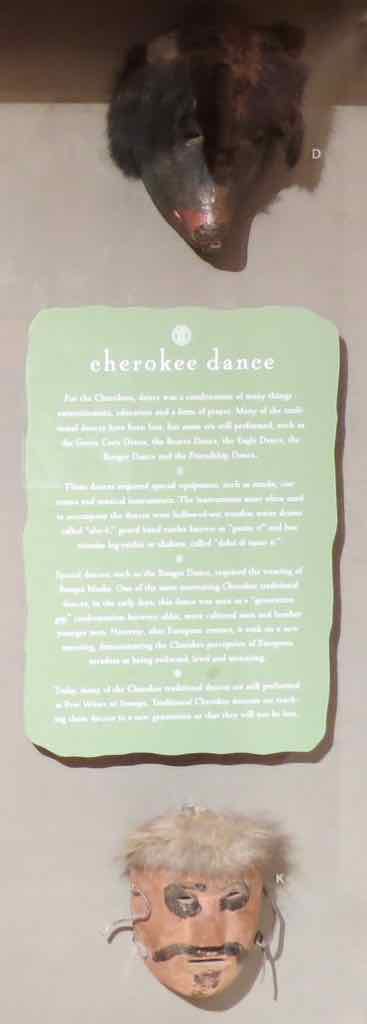 I was popular, but I cheated my way through high school. I had friends who would take care of me. That’s terrible to say, but that is part of my good story. When I got to college, I didn’t have anybody to take care of me and that’s when I had to come to terms with my Indian-ness. That’s when I to go back and learn how to do things. I went back to remedial math and started over.
I was popular, but I cheated my way through high school. I had friends who would take care of me. That’s terrible to say, but that is part of my good story. When I got to college, I didn’t have anybody to take care of me and that’s when I had to come to terms with my Indian-ness. That’s when I to go back and learn how to do things. I went back to remedial math and started over.
I was a classic underachiever. All my test scores were high enough that I was always in the smart class, but I was lazy. All my friends were in the Alpha Beta club, but there were always two of us that were left. We started the club, Dogma Cadima club – those with the D’s and C’s.
It wasn’t until I embraced my native-ness — me being Cherokee — that I started to do well. This one lady said, “If you find that one thing that makes you happy and you make that your career, you’ll be happy.” Those were some awesome words. I tried to go for business and I didn’t like it. I tried for biology. After one zoology class, I was done. I hated the smell of formaldehyde. It wasn’t until I got into anthropology that things started to work.
I had bounced around my whole life. I worked in fast foods. 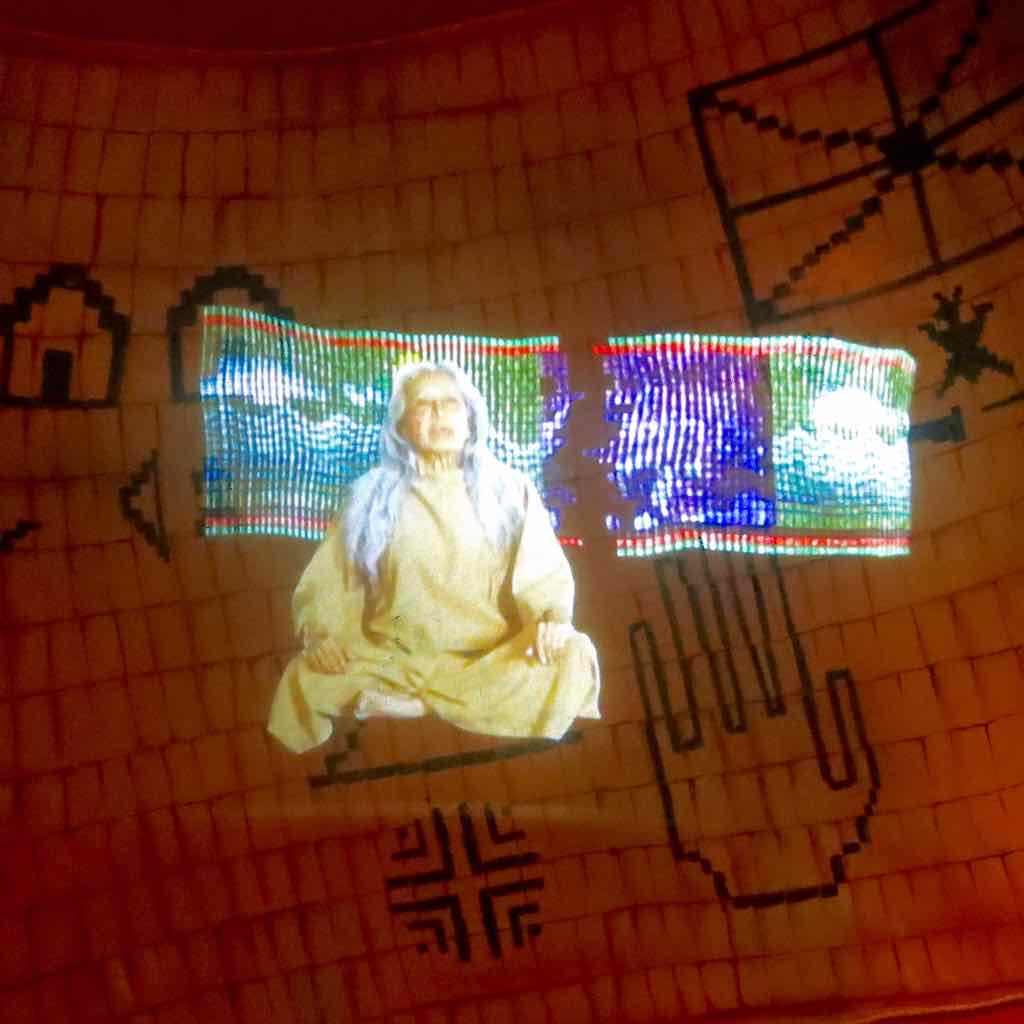 I’ve always worked, but it wasn’t until I got into anthropology that I started to get all A’s and only one B. When I found anthropology, I started to bloom. It’s not the job that I’m doing – that doesn’t make me. It’s finding the groove that you fit in. If you don’t fit that groove, you’ll totally be unhappy.
I’ve always worked, but it wasn’t until I got into anthropology that I started to get all A’s and only one B. When I found anthropology, I started to bloom. It’s not the job that I’m doing – that doesn’t make me. It’s finding the groove that you fit in. If you don’t fit that groove, you’ll totally be unhappy.
I don’t want to proselytize but I’m a praying man. I believe a higher power is always great to lean upon. That is each person’s journey, but that focus has helped me. I believe that God has led me. Any time I try to go a different way, it doesn’t work out. If you trust in that, you’ll be led in a good direction. Good things will happen.
2. What does this mission mean to you?
I went to school for anthropology and I told them that one day I wanted to be the director.  I had been on this journey to learn my culture. There was a time that we were in danger of losing things. Now we are getting it back. People are really embracing culture now. I was growing up in a time that culture wasn’t cool.
I had been on this journey to learn my culture. There was a time that we were in danger of losing things. Now we are getting it back. People are really embracing culture now. I was growing up in a time that culture wasn’t cool.
I started as archivist and worked here for about twelve years. It was time for me to learn and grow. I got into politics. I ran for council and was there for two years. That broadened my horizons. When I was working on culture, I was the culture guy. When I was a council member, I couldn’t focus on culture. I was doing all kinds of other things for everybody. I learned a lot. It was a great experience and I had some life long lessons there. But me coming back to my path was me coming back to where I need to be — this was to lead the museum and push for culture. This is where I needed to be.
3. What was your best day being the Director of the Museum of the Cherokee Indian?
As the director I encounter so many things happening in the day. In my job, there is always something new happening. 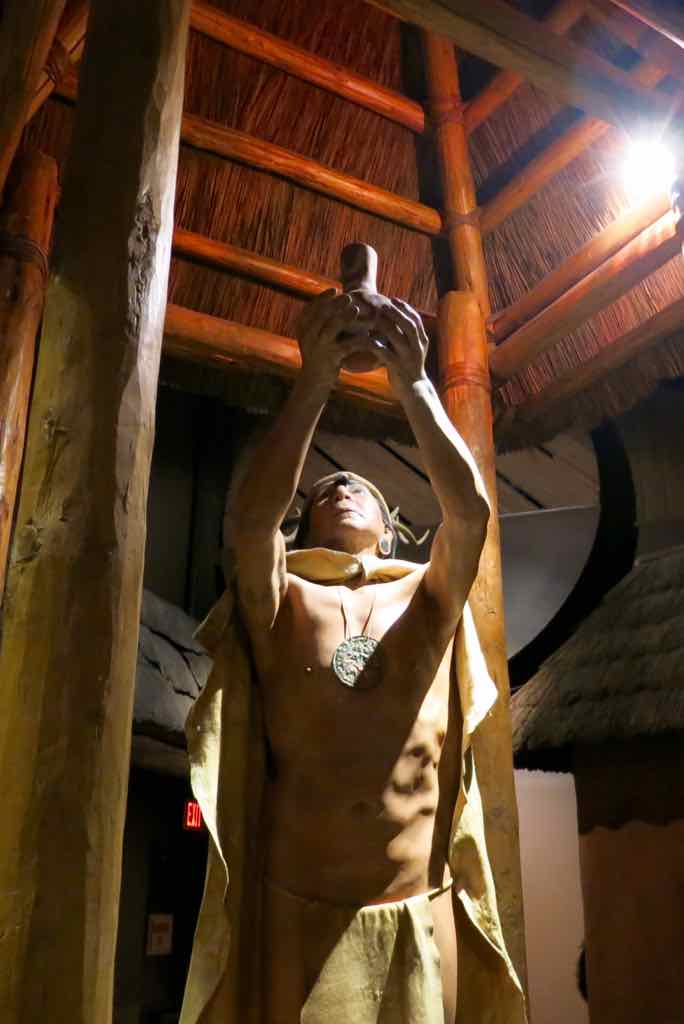 A new exhibit can come in. There was a load of books from the elementary library today. What’s the greatest thing for me as director is to know if I can leave it better than when I found it. When I leave this earth, I want to know that I wasn’t the only person doing it.
A new exhibit can come in. There was a load of books from the elementary library today. What’s the greatest thing for me as director is to know if I can leave it better than when I found it. When I leave this earth, I want to know that I wasn’t the only person doing it.
You can see people out in the museum. They are a reflection of the fact that we are trying to promote the culture. I don’t want to be the last Ishi. He was the last person of his tribe. He was a California Indian. That was around the early 1900’s. He was the last one and anthropologists were studying him. He was showing them how to shoot the way that he learned and the skills that he knew. He had nobody to talk to. He was lonely.
 I’ve been through that. I’ve been lonely because I had nobody who cared. But now there are people that care. I’ve done good in that I’ve pushed and pushed in promoting the culture. As the director, I can move things in the direction they need to go. That comes with a great amount of responsibility.
I’ve been through that. I’ve been lonely because I had nobody who cared. But now there are people that care. I’ve done good in that I’ve pushed and pushed in promoting the culture. As the director, I can move things in the direction they need to go. That comes with a great amount of responsibility.
(Note: To learn more about Ishi, click here. Ishi was the last member of the Yahi, a group of the Yana of the U.S. state of California. Widely acclaimed in his time as the “last wild Indian” in America, Ishi lived most of his life completely outside modern culture.)
4. What was your worst day being the Director of the Museum of the Cherokee Indian?
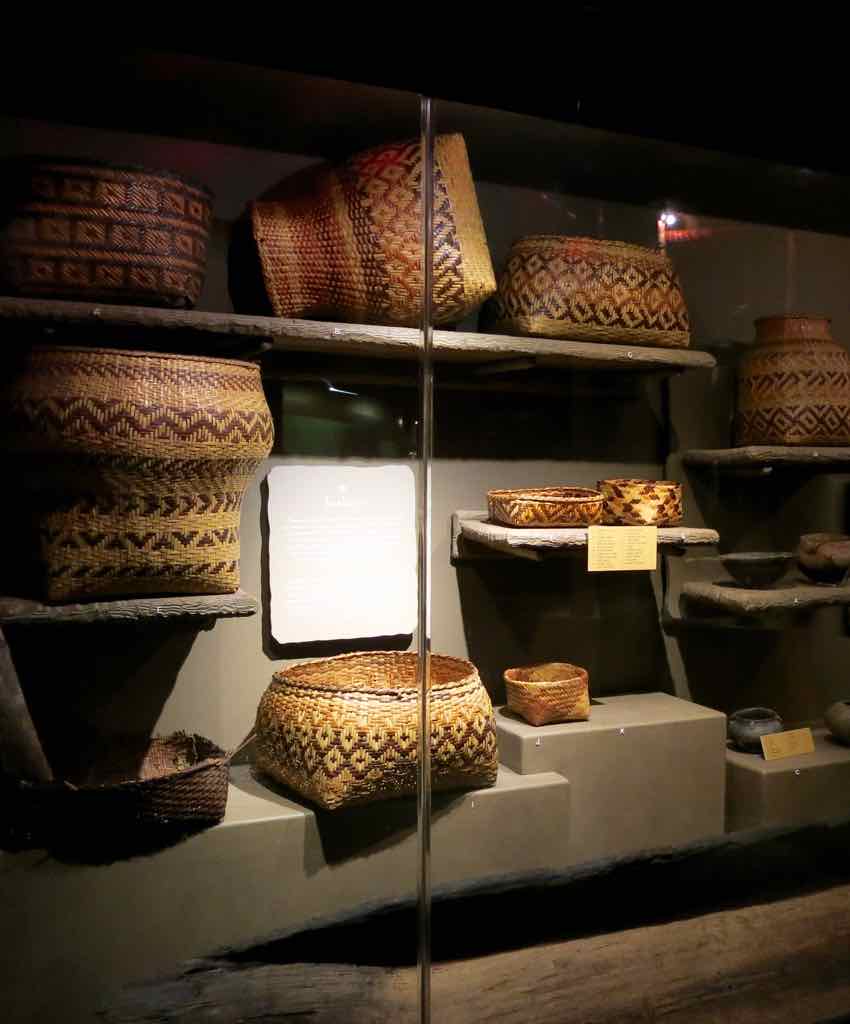 There are all those things that pop up and you never know what’s going to happen. My worst day is when the theater goes out or I’ve got staffing concerns. The worst day is all about petty stuff that is so petty – but it eats your time. When there is a problem, when stuff starts happening, I ground myself. I say, “OK. Let’s take care of it.” I don’t look and say, “Oh look? What are we going to do?” I say, “OK. Let’s take stock. Let’s work.”
There are all those things that pop up and you never know what’s going to happen. My worst day is when the theater goes out or I’ve got staffing concerns. The worst day is all about petty stuff that is so petty – but it eats your time. When there is a problem, when stuff starts happening, I ground myself. I say, “OK. Let’s take care of it.” I don’t look and say, “Oh look? What are we going to do?” I say, “OK. Let’s take stock. Let’s work.”
5. How did you survive your worst day?
I wasn’t born with the ability to survive. I’ve shown that I was the lazy kid that cheated his way through high school. 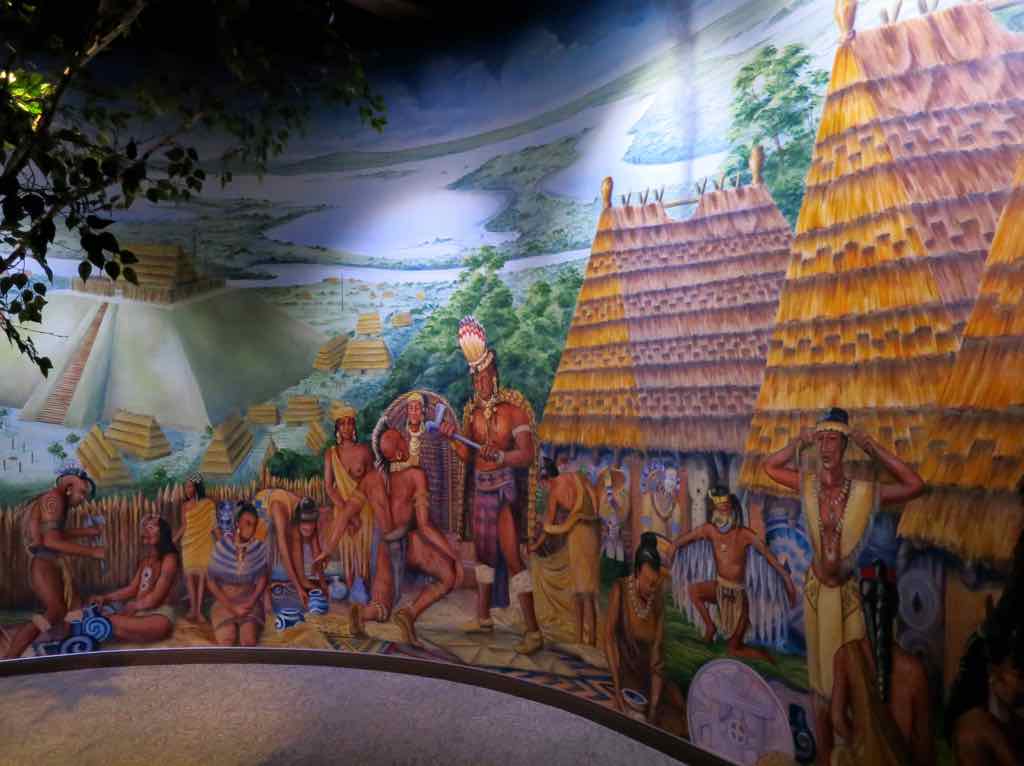 I just got by – the classic underachiever. But there was a time that I said, “I want more. I want to be better.” I was trying to find myself. I would read books and listen to motivational stuff. This guy named Zig Ziglar I loved because he talked about making a list of the greatest employee that you could have or you could be and writing that down. Like you could say, “He would be on time. He would put in the extra effort.” He said, “Make those lists. Now look at those things. They are all learned.” They are not genetics.(Note: To read more about Zig Ziglar, click here.)
I just got by – the classic underachiever. But there was a time that I said, “I want more. I want to be better.” I was trying to find myself. I would read books and listen to motivational stuff. This guy named Zig Ziglar I loved because he talked about making a list of the greatest employee that you could have or you could be and writing that down. Like you could say, “He would be on time. He would put in the extra effort.” He said, “Make those lists. Now look at those things. They are all learned.” They are not genetics.(Note: To read more about Zig Ziglar, click here.)
Working hard is not genetics. It is learned. You can learn how to be on time. You can learn to be efficient. 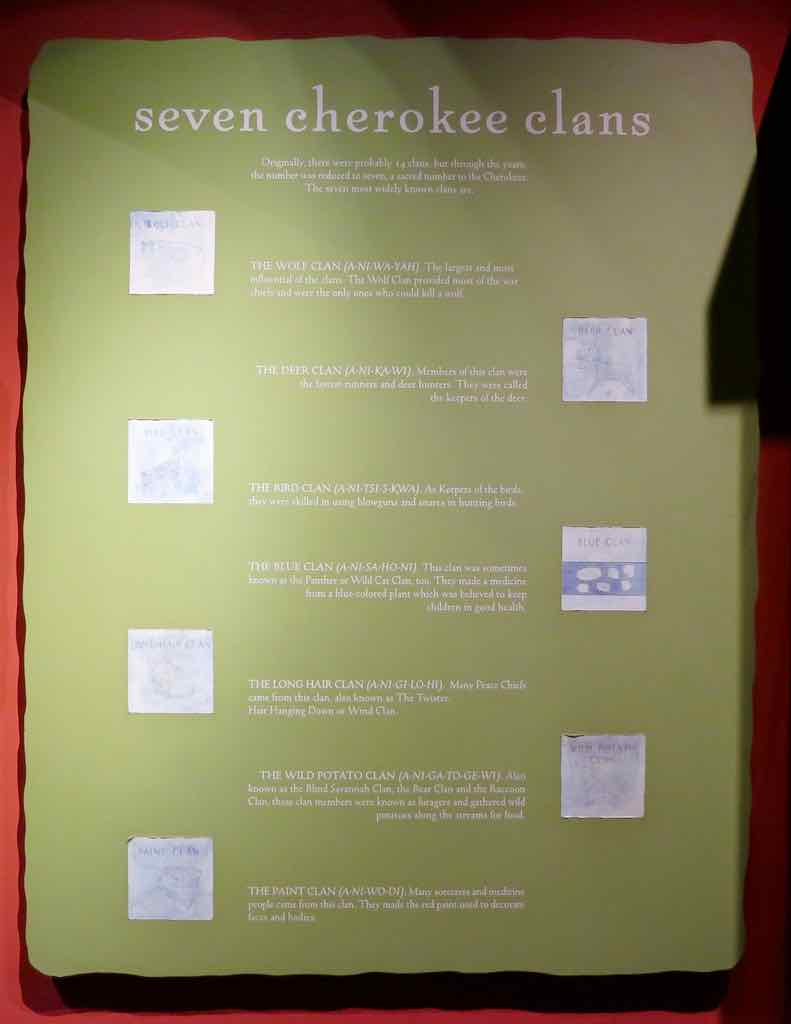 You can learn to not lose it. You can learn. The world is full of heroes that shouldn’t be heroes. That is me. I shouldn’t be a hero. I should be an alcoholic. That could have been easy for me.
You can learn to not lose it. You can learn. The world is full of heroes that shouldn’t be heroes. That is me. I shouldn’t be a hero. I should be an alcoholic. That could have been easy for me.
You have to love yourself enough. Ask, “Am I of value?” You have to have enough self love to not allow yourself to be something else. If you were looking at your kid as yourself, would you want your kid to be nothing? Do you want someone who works hard and does something? Sometimes people have a hard time coming to terms with that. You have to surround yourself with people who are models.
6. What advice do you have for someone who would like to follow your example?
The KISS method: Keep it simple stupid. You can say, “Oh, I need to get this diploma. 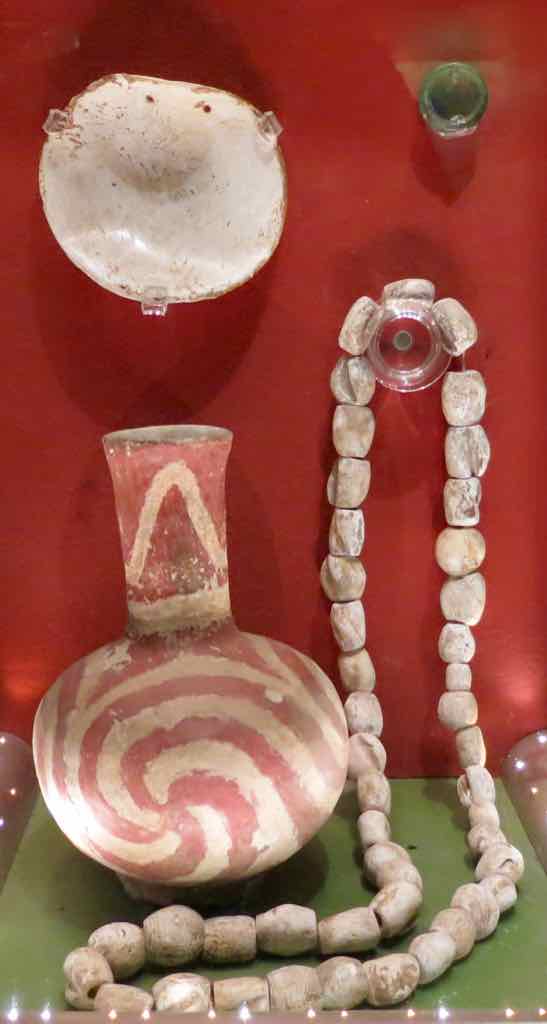 Oh I need this and that and need to chart my path.” But the first thing you have to do is to start with you. You say, “OK. I want to be a director.” If you know what a director is going to do, you can start making that list. Do you want a director that doesn’t show up? It is really simple stuff. You first decide, “I’m going to get up.”
Oh I need this and that and need to chart my path.” But the first thing you have to do is to start with you. You say, “OK. I want to be a director.” If you know what a director is going to do, you can start making that list. Do you want a director that doesn’t show up? It is really simple stuff. You first decide, “I’m going to get up.”
If you go to class and pay attention during that class and do your homework, you’ll know it. That’s simple. That’s it. You don’t have to strive to be number one. It’s great if you want to be number one and be competitive and try to be the top dog. But if you go to class and just do what they ask you to, that’s what is all about.
I tell everybody this story. It’s a new story. It isn’t an ancient story. There is a guy, Walter Calhoun, who is a mentor. He was my mentor who taught me all kinds of stuff. 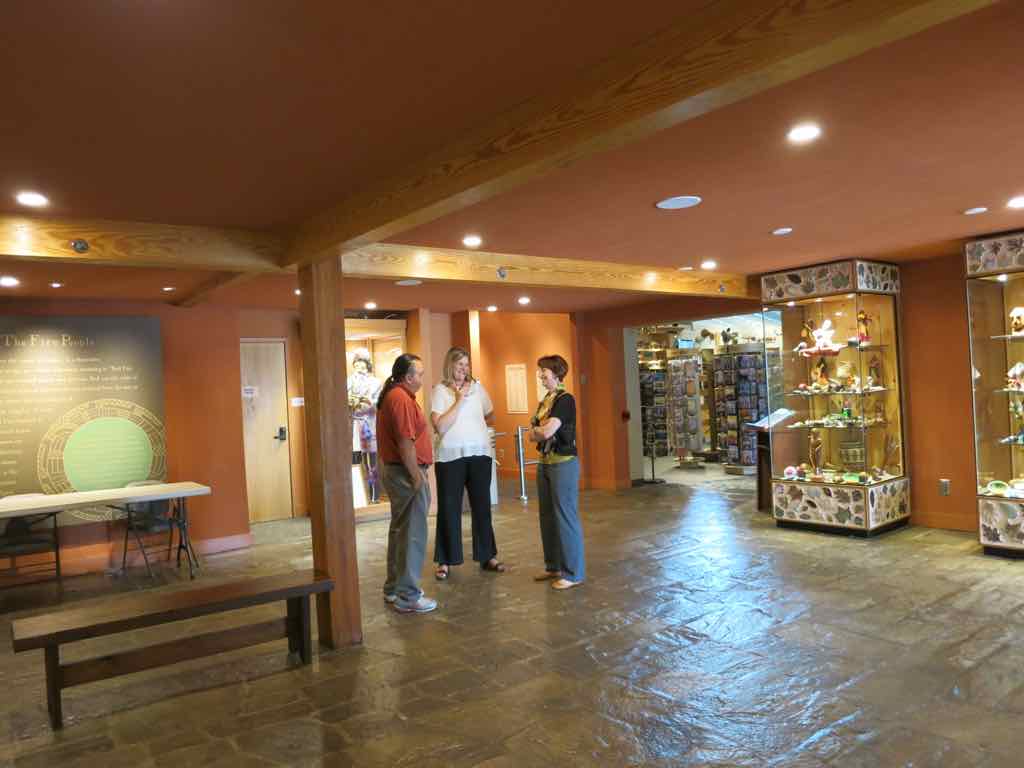 He was a widower. His family went to sit with him one day. It was on a Sunday. They ate and played games and stuff. It was about two o’clock. He said, “I need to go. I need to get this medicine to this lady.” His daughter asked, “What’s wrong with her dad?” He said, “Oh, she has a real bad cough. She tried the hospital and the white man’s medicine is not working. She wants Indian medicine and I’m going to go get it for her.” She said, “Well, Dad, you know I had the same thing last week. How come you didn’t get it for me?” He looked into her eyes and said, “You didn’t ask.” He turned and walked away.
He was a widower. His family went to sit with him one day. It was on a Sunday. They ate and played games and stuff. It was about two o’clock. He said, “I need to go. I need to get this medicine to this lady.” His daughter asked, “What’s wrong with her dad?” He said, “Oh, she has a real bad cough. She tried the hospital and the white man’s medicine is not working. She wants Indian medicine and I’m going to go get it for her.” She said, “Well, Dad, you know I had the same thing last week. How come you didn’t get it for me?” He looked into her eyes and said, “You didn’t ask.” He turned and walked away.
(Note: To learn more about Walter Calhoun, respected Cherokee elder, click here.)
 This is my favorite story and it speaks to all things. You can get anywhere in the world if you will ask. If you don’t, you remain ignorant. Ignorance is not a bad thing. It is what it is. But you don’t have to remain in ignorance. Ignorance is a state. If you choose to stay in this state, there is one way out. Say, “Help me.”
This is my favorite story and it speaks to all things. You can get anywhere in the world if you will ask. If you don’t, you remain ignorant. Ignorance is not a bad thing. It is what it is. But you don’t have to remain in ignorance. Ignorance is a state. If you choose to stay in this state, there is one way out. Say, “Help me.”
It starts at every level. It starts with your parents. “Help me dad.” “Help me teacher.” “Help me.” “Help me friends.” “Are you my friend?” “Help me.” That just moves on up. You can ask for directions. You might be walking. You might be swimming. You ask for help. “Which way?” It is the empowerment ask. You can get anywhere in the world if you just will ask.
- « Previous person: Addie Schoenberger
- » Next person: